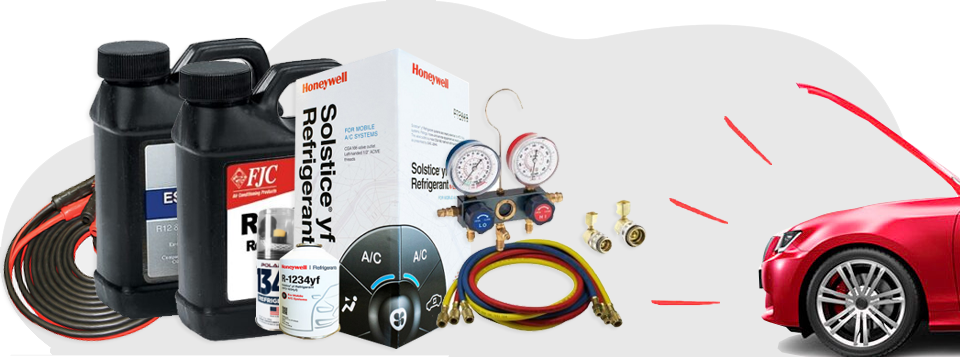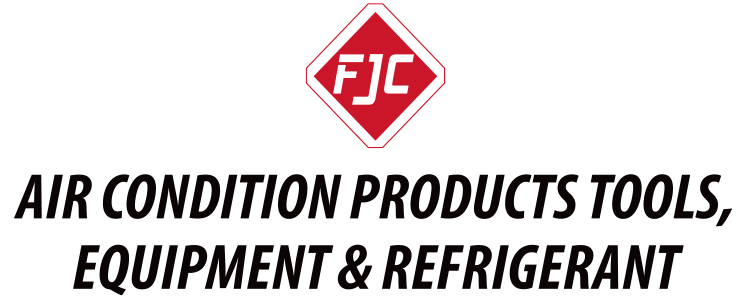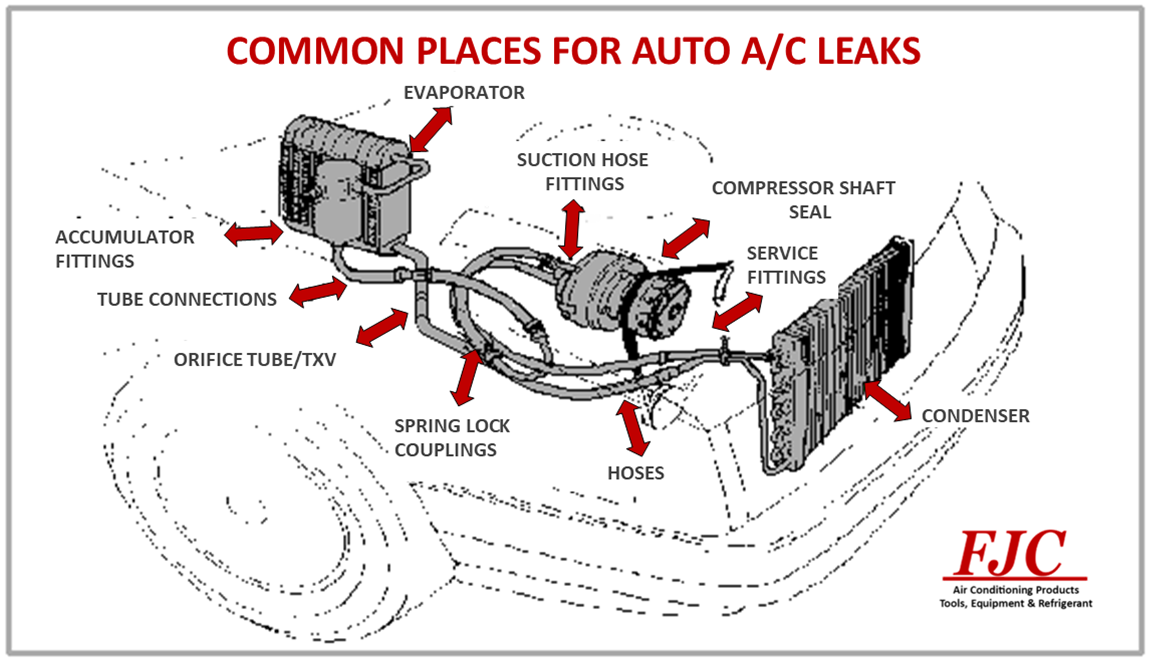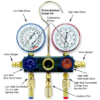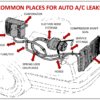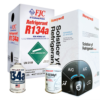Top 4 Causes of Air Conditioning Leaks (And What to do About Them)
A vehicle’s air conditioner keeps the cabin cool and comfortable on hot days. To do that effectively, it requires the correct level of refrigerant in the system. Since refrigerant is not “consumed” or used up in the normal process of cooling a vehicle, If a system is low on refrigerant it’s because there is a leak.
A refrigerant leak can occur at any point in the air conditioning process and so it’s sometimes difficult to pinpoint the exact location of the leak, but if you understand the underlying cause of the leak, preventing them may become a bit easier.
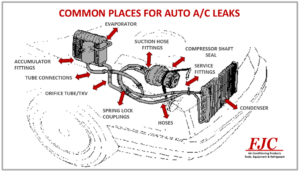
There are a few main causes of AC system leaks:
Wear and Tear
Wear and tear of the rubber parts of your system is the most common cause of leaks. While much of your air conditioning system is made of metal, including the high pressure lines, parts of the system are rubber. There are rubber seals/O-rings which are put in place to prevent leaks, but over time—and with exposure to heat and moisture—they can degrade, dry out and crack, allowing refrigerant to slowly leak out. Ideally, these parts will be removed and replaced with new ones, but an alternative which often works just as well is to recondition and seal them with one of FJC’s stop leak products.
Moisture
If the rubber in a hose, seal or other component breaks down, as discussed above, it should be taken care of as soon as possible. Neglecting to do so might allow moisture in to contaminate the system. When moisture mixes with refrigerant, an acid is formed which can break down other system components such as the receiver/dryer or accumulator or can cause tiny pin hole leaks—a much more complex and costly repair than a simple O-ring replacement or rubber leak seal.
Exposure to Road Salt & Brine
In Spring many people find that their A/C is not functioning properly. That can be caused by road salt and brine used in the winter to melt icy roads. Unintended deposits of sodium chloride, combined with water, can cause corrosion to the metal parts of a system and shorten its life span. For this reason, it’s recommended to wash your vehicle as soon as possible after each snow or ice storm to protect all the metal components of your vehicle, including the A/C.
Physical Damage
Some system damage can be caused by impact from an accident. Sometimes this type of damage is major. We advise to have the vehicle inspected after any accident or if you experienced any rough riding conditions to make sure no damage has been done to any vehicle system or part, including the air conditioning system.
No matter the cause, Detecting an A/C leak in a timely manner is vital. If you wait too long from the initial point of malfunction, additional damage may occur. Most small leaks are not visible to the naked eye, and FJC leak detection tools, dyes and equipment may be required to help you find them. Larger leaks may be detected by a visual oily/dirty residue from the place that the A/C oil has escaped the system.
LMK 2020
